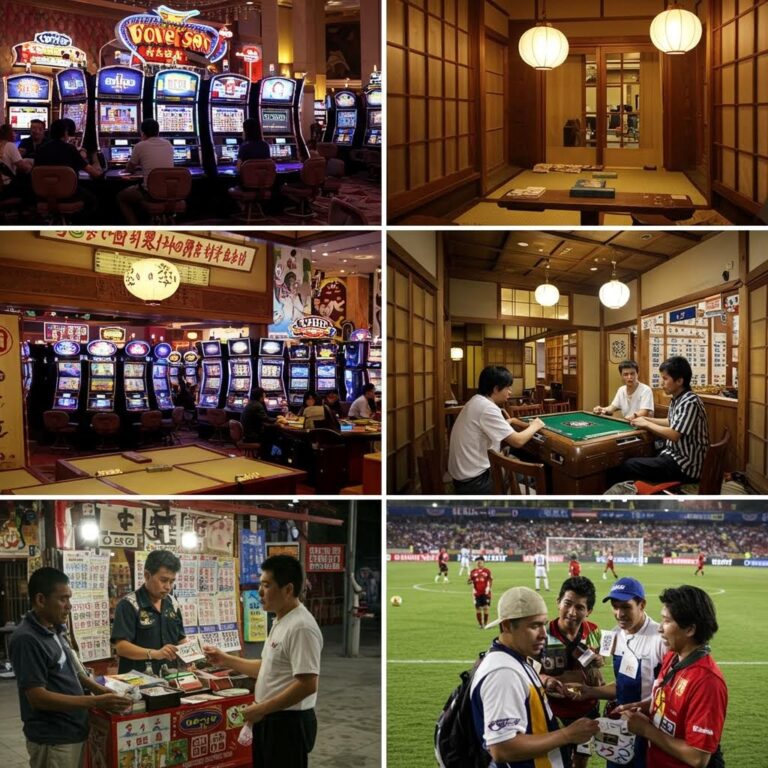The Truth About Casino Winner Privacy Laws: Debunking Common Myths
Understanding Casino Privacy Regulations
Casino winner privacy remains one of the most misunderstood aspects of gambling regulation in the United States. Contrary to popular belief, private casinos are not legally obligated to publish winners’ names or personal information. This critical distinction separates casino operations from state lotteries, which typically require public disclosure due to their government funding and oversight.
Casino vs. Lottery Winner Disclosure Requirements
State Lottery Requirements
State lotteries generally mandate public disclosure of winner identities for transparency purposes, as they operate using public funds and require accountability to taxpayers.
Private Casino Protocols
Private gaming establishments follow strict confidentiality guidelines that prioritize player privacy. They must:
- Report winnings to the Internal Revenue Service (IRS) for tax purposes
- Obtain explicit written consent before using winner information for marketing
- Maintain secure databases of player information
- Protect winner identities unless authorized for release
Origin of the Publishing Myth
The misconception about mandatory winner publication gained traction through:
- Early 2000s gambling forum discussions
- 토토 후기 모음
- Social media misinformation
- Confusion between lottery and casino regulations
- Marketing campaigns featuring willing participants
Legal Requirements for Casinos
Actual casino obligations regarding winner information include:
- Tax reporting for significant wins
- Compliance with anti-money laundering regulations
- Protection of player privacy under data protection laws
- Adherence to state gaming commission guidelines
Understanding these distinctions helps clarify the true nature of casino privacy policies and dispels common misconceptions about winner publicity requirements.
The Origins of This Myth
The Origins of Casino Winner Secrecy Myths
Historical Evolution of the Casino Winner Myth
The widespread belief about casino jackpot winner suppression emerged in the early 2000s through online gambling forums.
These platforms became breeding grounds for misinformation about supposed mandatory winner publication laws. The myth suggests casinos deliberately conceal big winners to maintain mystique around gambling success.
Social Media’s Impact on the Misconception
By 2010, the myth reached new heights when viral social media posts claimed casinos were choosing to pay fines rather than comply with alleged winner disclosure requirements.
This misconception gained significant traction despite having no basis in actual gambling regulations or privacy laws. In reality, casinos must only report substantial winnings to the Internal Revenue Service for tax compliance.
Key Factors Perpetuating the Myth
Several elements contribute to this persistent misconception:
- Publicity Photos: Occasional images of winners with oversized checks create false expectations about winner publicity requirements
- State Lottery Confusion: The practice of public winner announcements in state lotteries leads to incorrect assumptions about casino policies
- Casino Operational Privacy: The inherently discrete nature of casino operations fuels speculation about supposed cover-ups and hidden rules
The truth remains that casinos operate under strict regulatory frameworks that prioritize both winner privacy and tax compliance, dispelling the myth of mandatory winner publicity.
Real Casino Privacy Policies
Casino Winner Privacy Policies: A Comprehensive Guide
Understanding Casino Privacy Requirements
Casino privacy policies follow strict industry-wide standards designed to protect winner confidentiality.
Under state gaming regulations and federal privacy laws, casinos must maintain robust safeguards for patron personal information, especially regarding jackpot winners.
Winner Publicity Options
Standard Privacy Choices
- Complete anonymity
- Partial disclosure (first name or hometown only)
- Full publicity consent
Winners receive detailed privacy consent forms upon hitting significant jackpots, allowing them to control their level of public exposure.
This standardized process ensures winner protection while maintaining operational transparency.
Progressive Jackpot Requirements
Progressive jackpot winners may face specific publicity obligations due to promotional agreements. These requirements typically appear in advance within gaming terms and conditions.
However, even in these cases, casinos limit disclosed information to protect winner security.
Information Protection Standards
Casinos implement robust data protection protocols covering:
- Social security numbers
- Residential addresses
- Financial information
- Personal identification details
No sensitive information releases occur without proper legal authorization through court orders or explicit winner consent.
Marketing Considerations
While casinos benefit from winner publicity through marketing opportunities, they can’t mandate public disclosure.
Winner privacy rights take precedence over promotional interests, ensuring patron protection remains the primary focus of privacy policies.
State Laws on Winner Disclosure
State Laws on Casino Winner Disclosure Requirements
Overview of Casino Winner Privacy Laws
State requirements for casino winner disclosure demonstrate significant jurisdictional variations, with distinct legal frameworks governing winner privacy protection across different regions.
Most jurisdictions maintain discretionary disclosure policies for casino winnings, contrasting with more stringent requirements often applied to state lottery winners.
Major Gaming State Regulations
Nevada and New Jersey gaming regulations mandate reporting of substantial winnings to state gaming authorities and the Internal Revenue Service, while maintaining winner privacy protections.
States like Illinois and Maryland have implemented specific privacy legislation enabling casino winners to preserve their anonymity through formal request processes.
Tribal Casino Privacy Protocols
Tribal gaming establishments operate under enhanced privacy measures, governed by both federal and tribal jurisdictions.
These venues, protected by sovereign nation status, implement comprehensive confidentiality protocols that typically exceed standard state-mandated privacy requirements.
Winner privacy in tribal casinos receives protection through dual-jurisdiction regulations.
Legal Reporting Requirements
Federal Reporting Standards
- Mandatory IRS reporting for winnings above threshold amounts
- Bank Secrecy Act compliance for large cash transactions
- Financial reporting obligations for significant gaming wins
State-Specific Protocols
- Gaming commission notifications for major jackpots
- Record-keeping requirements for substantial prizes
- Winner verification procedures varying by jurisdiction
The distinction between casino gaming and lottery winner disclosure requirements remains crucial, with separate legal frameworks governing each category of gambling activity.
These differentiated standards help maintain appropriate privacy protections while ensuring regulatory compliance.
Marketing Vs Legal Requirements
Marketing vs Legal Requirements in Casino Winner Disclosures
The Delicate Balance of Casino Winner Publicity
Casino marketing strategies and legal compliance requirements create a complex dynamic when handling winner disclosures.
While marketing departments aim to leverage big wins for promotional value, strict privacy protection laws govern how winner information can be shared.
Legal Framework vs Marketing Objectives
Casino regulations differ significantly from state lottery requirements, creating frequent misconceptions about disclosure obligations.
While state lotteries often mandate winner publication, casino privacy laws explicitly protect winner identities from unauthorized disclosure. Marketing departments must navigate these regulatory requirements while pursuing promotional opportunities.
Voluntary Participation and Promotional Strategies
Casino marketing practices typically involve requesting voluntary participation from winners for promotional activities.
Properties offer additional incentives and comp rewards in exchange for using winner stories in advertising campaigns. These marketing arrangements represent contractual agreements between casinos and consenting winners rather than regulatory obligations.
Winner Privacy Protection Standards
Gaming establishments must maintain strict confidentiality protocols regarding winner information. Any public disclosure requires explicit consent from winners, distinguishing casino practices from lottery regulations.
When success stories appear in casino advertising or social media, these represent carefully negotiated promotional agreements that comply with privacy protection standards.
Key Considerations for Marketing Compliance
- Winner consent must be documented and voluntary
- Privacy laws take precedence over marketing objectives
- Promotional incentives must be clearly separated from winning obligations
- Marketing materials featuring winners require explicit authorization
Lottery and Casino Differences
Understanding Lottery and Casino Winner Disclosure Requirements
Public Disclosure Regulations for Lottery Winners
State lottery regulations mandate public disclosure of winner information in most jurisdictions.
This transparency requirement exists because lotteries operate as government-regulated entities using public funds.
The disclosure process serves to maintain public trust and validate legitimate prize distribution through official channels.
Casino Privacy Policies and Winner Protection
Casino regulations differ significantly from lottery requirements regarding winner disclosure.
Operating as private enterprises, casinos maintain strict privacy protocols for their winners.
While promotional opportunities exist, casinos require explicit consent before sharing any winner information in marketing materials or public announcements.
Critical Tax Reporting Thresholds
Tax reporting requirements create another fundamental distinction between lottery and casino winnings:
- Lottery prizes: All winnings require mandatory IRS reporting
- Slot machine wins: Reporting threshold begins at $1,200
- Table game victories: IRS notification required for amounts exceeding $5,000
These tax reporting guidelines remain confidential between the gaming establishment, winner, and tax authorities, maintaining winner privacy while ensuring regulatory compliance.
The distinct taxation frameworks highlight the key operational differences between lottery and casino gaming institutions.
Protecting Winner Confidentiality
Protecting Winner Confidentiality: A Complete Guide
Understanding Casino Privacy Policies
Casino winner confidentiality stands as a cornerstone of gaming establishment security protocols.
While casinos maintain detailed records for regulatory compliance, they implement robust privacy measures to protect winners’ personal information.
Winner anonymity remains a critical consideration for high-stakes players and jackpot recipients.
Legal Requirements and Consent
Casinos operate under strict privacy guidelines, with no legal mandate to publicly disclose winners’ identities.
Winner consent becomes mandatory before any promotional use of names or images.
Documentation requirements exist solely for tax reporting and regulatory oversight, ensuring both compliance and confidentiality.
Privacy Protection Strategies
Maintaining Winner Anonymity
- Trust establishment for claim processing
- Creation of legal entities for prize collection
- Generic publicity releases without personal details
- Confidential payment arrangements
Jurisdictional Considerations
Privacy rights vary across different gaming jurisdictions.
While lottery winners face public disclosure requirements in certain states, casino winners typically receive enhanced privacy protections.
Understanding local regulations helps winners navigate disclosure requirements effectively.
Best Practices for Privacy Preservation
- Review casino privacy policies before playing
- Establish confidentiality preferences before winning
- Consider legal structures for prize collection
- Request anonymous publicity options
- Maintain discretion during payout processes
Winner security extends beyond initial privacy measures, encompassing long-term financial and personal protection strategies.
Professional consultation regarding prize collection methods ensures optimal privacy preservation while meeting all legal obligations.

